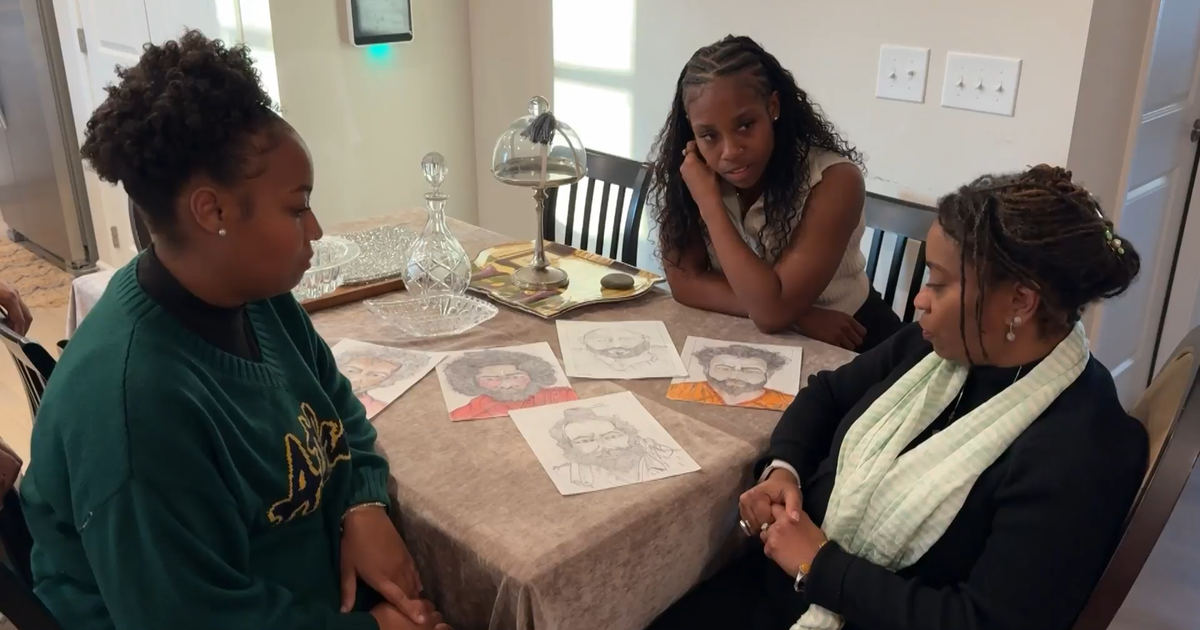Appeals court to decide whether Rep. Scott Perry's cellphone was legally seized by Justice Dept
Washington — A federal appeals court will decide whether Justice Department investigators probing the Jan. 6, 2021, attack on the U.S. Capitol were legally allowed to seize Pennsylvania Rep. Scott Perry's cellphone last year, and whether they are allowed to access its contents.
Judges sitting on the Washington, D.C. Circuit Court of Appeals heard oral arguments on Thursday from attorneys representing Perry and special counsel Jack Smith's office and examined whether Perry's argument —that the Speech or Debate Clause protects him from certain investigative steps — hold up.
The panel pushed prosecutors to clarify their interpretation of the law and later held a sealed hearing about the matter; much of the proceedings and legal rulings in this case have remained behind closed doors.
In August, FBI agents seized Perry's phone, made a digital copy of it, and returned the phone to him. He later filed a lawsuit against the Justice Department seeking to block investigators from examining the contents of the phone as part of their investigation.
The lawsuit revealed that on Aug. 2, 2022, a magistrate judge in Pennsylvania authorized a federal search warrant for the seizure of Perry's phone and prosecutors later told Perry's legal team they intended to seek a second warrant to authorize examination of the phone's contents.
Perry's lawyers filed a lawsuit to challenge the acts and argued that the Constitution's Speech and Debate clause protects lawmakers from being questioned by other branches of government about actions carried out in the course of lawmaking. Perry's phone, they contended, should be included under that protection.
"The Constitution authorizes only him, as the member of Congress whose records are at issue, to make determinations…about the extent to which the Speech or Debate clause applies to those records," Perry's attorneys wrote in the lawsuit.
The suit was later dropped by Perry's defense attorneys and the status of the investigation became unknown. Later, the case was taken under the control of the chief judge of the D.C. federal court, who reportedly ruled in a sealed order that Perry's phone was fair game for investigators. The three-judge panel who heard the case on Thursday put a secret hold on that ruling, pending the proceedings.
In court on Thursday, Perry's attorneys revealed that the chief judge's decision to side with the Justice Department was based on the contention that "informal" fact-finding by members of Congress is not protected by the clause.
Perry was one of a few Republican lawmakers subpoenaed by the now-defunct House select committee that investigated the Jan. 6 Capitol attack, after he echoed calls to decertify Joe Biden's victory in Pennsylvania. According to the committee, congressional investigators said they had evidence that the Pennsylvania Republican had played an "important role" in efforts to install former Justice Department official Jeffrey Clark as acting attorney general as then-President Donald Trump was continuing to promote his unfounded claims of election fraud. They said he had also communicated with Trump chief of staff Mark Meadows about Clark via text and encrypted messaging, the committee said.
John Rowley, an attorney for Perry, argued the congressman had used his phone in the furtherance of two legislative acts – his votes on certifying the election results on Jan. 6 2021 and on H.R. 1, known as the For the People Act – so the disclosure of his device to investigators should not have happened. He added that Perry had been engaged in fact-finding that may have been related to the possible legislative acts.
"It is an absolute privilege," Rowley said of the records contained on the phone, in arguments before Judge George Katsas and Naomi Rao, Trump appointees, and Judge Karen Henderson, a Geroge W. Bush appointee who attended remotely for part of the hearing. "It may be inconvenient to law enforcement at times," Rowley added.
Perry's defense that he was using his phone was "not hypothetical," Rowley told the judges, but a real-life scenario that warrants the protection.
The judicial panel appeared skeptical and pushed Rowley on whether communications between a member of Congress and someone outside of the legislative branch were privileged.
Katsas called Rowley's legal argument "odd," saying that it would mean "the communication can be to anyone in the universe."
Raising numerous hypothetical situations like one in which a member of Congress was accused of taking a bribe, Katsas and Rao tried to parse why a private conversation between a representative and someone outside of Congress would be shielded from executive branch investigation.
But the Justice Department prosecutor, John Pellettieri, was also met with skepticism by the judges as they searched for a legal boundary between privileged and non-privileged congressional communications. Pellettieri argued that privilege must be explicitly connected to "Congress' exercise of fact-finding authority."
The panel again posed several hypothetical questions to the prosecutor, ultimately prompting him to assert that a member of Congress seeking outside advice on how to vote on a bill is not protected from disclosure of those communications by the Speech or Debate Clause.
Katsas called it an "odd line" and said the Justice Department's view of the privilege might be too "narrow." Rao asked, "How far does the confidentiality extend?"
Pellettieri contended that this was a line for the courts to draw, urging the judges to "balance" the constitutional idea with real-life application, and warning Perry's interpretation of the Speech or Debate Clause "cloaks members of Congress in very broad, almost absolute immunity."
In June, former White House aide and Jan. 6 committee witness Cassidy Hutchinson testified that in a Dec. 2020 phone call, Perry expressed support for encouraging people to march to the Capitol on Jan. 6.
At the time of his subpoena, Perry, the chairman of the House Freedom Caucus, told reporters the committee's demands were "all about distracting America from their abysmal record of running America into the ground."
The three-judge panel filed the first-publicly available document in the sealed case last week, telling the attorneys for both sides that they were to answer questions about whether the Speech or Debate Clause protects communications between members of Congress and individuals working in the executive branch.
Perry is not the first individual to try to use the Speech or Debate Clause for protection. South Carolina Sen. Lindsey Graham asked federal courts to immunize him from testifying before a special grand jury in Georgia investigating allegations of election interference by the Trump campaign. The court ultimately narrowed the scope of questioning Graham would have to answer.
And this month, former Vice President Mike Pence has said he intends to invoke the separation of powers argument to shield him from a grand jury subpoena issued by the special counsel investigating the events surrounding Jan. 6, 2021.



